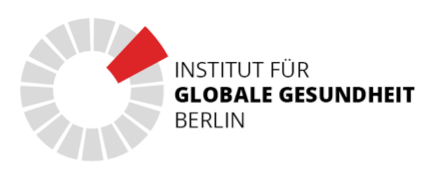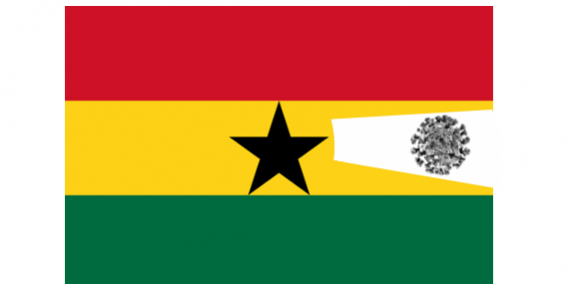AN INSIGHT INTO COVID-19 IN GHANA
by Seth Kofi Abrokwa, May 7, 2020
As at when this article was written (7 May 2020), 3091 cases of COVID-19 have been reported with 303 recoveries and 18 related deaths in Ghana. Following the confirmation of the first two cases on 12 March 2020, and as confirmed cases continued to increase, the president, who chairs the COVID-19 taskforce team activated national response mechanisms and initiated public health measures aimed at achieving the following objectives: limiting and stopping the importation of the virus; containing the spread; providing adequate care for the sick; limiting the impact of the social and economic life; inspiring the expansion of our domestic capabilities and deepening our self-reliance. I share with you some of the response and public health measures, the current state of affairs and some considerations for the way forward with regards to COVID-19 in Ghana.
PUBLIC HEALTH MEASURES
The president started a series of formal national addresses dubbed “ADDRESS TO THE NATION” at specific weekly intervals after the first two cases were confirmed. Notwithstanding, in January 2020, measures were already in place at the international airport for travellers to undergo temperature screening, while social distancing and hand washing with soap and under running water campaigns had started even when the outbreak was remote to Ghana.
On 15 March 2020, the president informed about the closure of all public schools, including universities and a ban on social gatherings such as churches, sports events and political gatherings. Weddings and funerals were restricted to 25 people only. The campaigns for hand washing and social distancing were intensified in all media outlets, while local governments were instructed to disinfect marketplaces in the major cities. In a following address on 21 March, he informed about closure of the international airport and land ports of entry as the cases continued to rise. This was only the first of measures put in place as subsequently, travellers into Ghana were isolated and tested on mandatory basis.
On 27 March 2020, the president invoked the Imposition of Restriction Act, 2020 (ACT 1012) effective on Monday 30th March ,2020. This implied a two week mandatory lockdown, which was extend to three weeks, for persons in Greater Accra Metropolitan area, Greater Kumasi Metropolitan area, and their surrounding districts. These areas had then recorded the highest numbers of COVID-19 cases. These measures received lots of criticism by different local public health and economic experts. During the lockdown period, meals were made available to vulnerable groups and the needy by the government, individuals and faith-based organisation. For the average Ghanaian, daily activities altered, and for the market women and small shop owners’ business came to a standstill.
I will pause, to briefly highlight the fact that COVID-19 has cast a shadow on other public health related conditions for the past four months, as the current outbreak of cerebrospinal meningitis in the northern part of Ghana is neither receiving similar attention nor social awareness as the former. And same could be said for press and social media campaign for other conditions of public health importance such as mental health and non-communicable disease.
In continuation, the preparedness of the country has also involved response in the health care system. In addition to the “traditional” testing centres; The Noguchi Memorial Institute in Accra and the Kumasi Centre for Collaborative Research in Tropical Medicine, there are plans in place to acquire testing centres in all 16 regions of the country to facilitate the testing process. Until then, testing is still being carried out by transporting all samples to the aforementioned centres either by cars or by drones in areas where the services are available. Information with regards to ventilators are unclear although according to the Presidential Advisor on health, the country currently has over 400 ventilators, 50 of which were acquired following the outbreak. There has been an increase in the mass production of personal protective equipment locally for use by healthcare workers and mandatory use of nose masks by all citizens in public places. The government also encourages offices and business to enforce “no mask no entry” policy at their place of work.
CURRENT SITUATION
The ongoing pandemic and the restriction measures are having grave effects on the economy, education, health and the general development of Ghana. There is an expected slowdown in the country’s economic growth and already the people who work in the informal economic sector are feeling the impact as a result of the containment. Schools, some marketplaces, churches, many restaurants and other places of recreation, which provide social support services and livelihood support programmes are still closed. This situation leaves vulnerable groups disproportionately affected in the crisis. For students, attempts are being made to move lessons to online platforms. Weddings are being postponed and the morgues are overflowing with corpses as the average Ghanaian is unwilling to rush through funeral rites. There is also expected reversal in some milestones achieved in some of the health indices due to the pressure that will be put on the already deficient health system and public health infrastructure.
On the bright side, there has been relief of utility bills either completely or by 50% depending on the wattage consumed per month by a given household spanning from April to June. Provision has been made by some institutions to serve as isolation and treatment centres for persons who have been infected. All health workers have been given three months tax exemption, while frontline health workers will receive additional fifty percent of their basic salary per month for April, May and June. The Noguchi Memorial Institute in Accra have managed to sequence the genome of the corona virus, and scientists at the Kwame Nkrumah University of Science and Technology and Incas Diagnostics have also developed a rapid diagnostic test kit which is being evaluated.
CONSIDERATIONS FOR THE WAY FORWARD
There is no one solution to mitigate the COVID-19 crisis, and in the quest to flatten the curve, Ghana needs to review her overall national response and public health policy to align with the local context. Several weeks of containment and three weeks of lockdown, and there is no sign of reduction in number of cases but rather significant increase. Evidence from Italy and China shows that at the peak of the outbreak, the number of patients who require ventilatory support out-numbered the available intensive care units (ICU). This should be a wake-up call for Ghana to invest and maximise all public health efforts as the country may not be able to fund additional ICUs from her limited health budget.
It will be essential now, as the pandemic is not widespread, for the government to deploy a community team, who can disseminate uniform information in households in order to ensure all and sundry are on the same page. The government should build strong relationship with the press and increase their social media presence to ensure that people understand the issue at hand, rather than issuing vertical directives, which may not consider the general wellbeing of the population, but rather a one-sided attempt to fight COVID-19. This could have calamitous repercussions. COVID-19 presents itself as a good crisis due to the current low community spread and low mortality rate in Ghana. It provides Ghana the opportunity to strengthen community awareness and community participation, not only to flatten the curve but to shine light on how stronger community education and involvement can improve community action towards improving all other issues of public health importance. Finally, COVID-19 has exposed a weakness in research, translation and the implementation of research knowledge of the Ghana public health infrastructure or a lack thereof. There is the need for Ghana to invest and build a robust research capacity that can independently function and provide country specific measures and regulations for addressing and improving health care concerns.
The pandemic has highlighted the fact that, strategies and public health measures are not one size fits all. It has become necessary therefore for all countries to identify what fits best in their own context and strengthen capacities based on derived local knowledge.
Author
Seth Kofi Abrokwa is a Ghanaian with a medical degree from the University of Ghana School of Medicine and Dentistry. He is currently pursuing a Master of Science in International Health at Charité Universitätsmedizin, Berlin.

